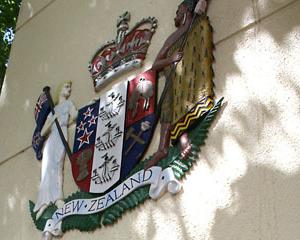The discovery of a cane toad in Queenstown last week was an acute reminder of the "fragility" of New Zealand's biosecurity system, the Labour Party's biosecurity spokesman, Damien O'Connor, said yesterday.
However, it was not enough to prompt Maf to review its biosecurity procedures at international airport terminals.
The cane toad was discovered at Ultimate Hikes Duke St shop last Tuesday night, when it hopped out of an Australian woman's bag.
A Maf spokeswoman said the woman, who was from Cairns, had travelled from Sydney to Queenstown last Tuesday and on her arrivals card declared a pair of hiking boots.
The passenger was taken to a dedicated search bench where the boots were examined, the spokeswoman said.
"They were banged together to dislodge soil or plant material on the soles.
"They were treated with a detergent solution.
"There were socks inside the boots, but they were not removed - there was no evidence of soil or contamination around the tops of the boots," she said.
After the woman's boots were treated her bags were X-rayed and she left Queenstown Airport.
The Maf spokeswoman said that evening the woman attended a "company briefing" at Ultimate Hikes in Queenstown.
"She purchased something, she placed [her purchase] in the bag with the boots and noticed the cane toad."
The toad was caught and Maf was contacted, collected the toad and then "euthanased" it by placing it in a freezer.
The toad is still being examined to determine its sex and what type it was.
The spokeswoman said cane toads were often "picked up" in New Zealand, but were difficult to detect on airport X-ray systems because of their skeletons.
"You would see . . . a fish or an apple, but they can be difficult to pick up because of their shape. "They don't have much of a skeleton."
The cane toad has poison glands and the tadpoles are highly toxic to most animals if ingested.
Of particular concern is that its toxic skin kills many other animals when ingested.
However, the Maf spokeswoman said it was a "low risk item".












